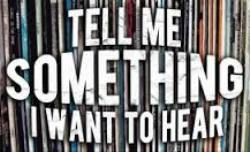No place reflects the petty, small-minded, tight-fisted,  public ill-will slice of Toronto thinking more than the editorial and commentary pages of the Toronto Sun. And I’m not even going to be talking about the newspaper’s hypocritical Pride and Black Lives Matter coverage here! If you want to see the birthplace of Ford Nation, this is ground zero, the temple mount, the gravy crèche.
public ill-will slice of Toronto thinking more than the editorial and commentary pages of the Toronto Sun. And I’m not even going to be talking about the newspaper’s hypocritical Pride and Black Lives Matter coverage here! If you want to see the birthplace of Ford Nation, this is ground zero, the temple mount, the gravy crèche.
Last weekend, before falling into its lip-smacking Pride tizzy, we were gifted with a blasé editorial about City Hall money matters. Trimming city budget by 2.6% should be routine, the Sun “informed” its readers. Because, well, that just goes without saying.
It’s pretty much standard right wing, a priori reasoning based on the simple assumption that all government spending is too much spending, so the less of it, the better. There’s some straw man arguments thrown into the mix, quoting opponents, ‘the left’, with words no one has said, arguments no one’s made in order to sound reasonable or, at least, less stridently ideological. Honestly, I probably wouldn’t even have read the tired mess except for a subsequent tweet that came across my time line.
An earlier Sun article by Daniel McKenzie reported that 20-25% of the subway cars on the Bloor-Danforth line would be without working air-conditioning this summer. The paper’s “Editor Emeritus”, whatever that is, an old horse unwilling to be put out to pasture? (surely you mean the glue factory – ed.), Lorrie Goldstein, was presented with the consequences of the unrelenting demand for low taxes. Making do without those nice-to-haves like subway car air-conditioning. Mr. Goldstein’s retort? As classy and gracious as one might expect from the “Editor Emeritus” of the Toronto Sun.
Sorry, this is too stupid to even respond to. They have the money to fix them. They just haven’t been fixing them.
“Sorry, this is too stupid to even respond to,” yet Mr. Goldstein proceeds to respond, firmly establishing the Sun’s style page, as it were, for its stable of editorial and commentary writers. Two successive thoughts need not be connected.  Just type out words as they spring into your head. The angrier and more irrational the better.
Just type out words as they spring into your head. The angrier and more irrational the better.
As for the actual response?
On the level of quackery equal to those who tell us doctors and scientists have the cure to cancer but they’re keeping it to themselves because they don’t want to lose their jobs.
Mr. Goldstein is suggesting that the TTC has the money to fix the air-conditioning in its subway cars but is simply choosing not to. Why? He only had 140 characters to work with, so deeper conspiracy theories are more difficult to fully flesh out on the Twitter platform. Besides, he didn’t really want to respond at all in the first place. Such rank stupidity only deserves so much inane rambling.
(Here’s a better explanation for the lack of subway air-conditioning from Ben Spurr in the Toronto Star. IT’S STARVED FOR CASH! Uncomfortable commuters are down the list of TTC priorities right now.)
 That the “Editor Emeritus” of the Toronto Sun, a newspaper that’s part of a bigger media conglomeration mired in as dire financial straits as Postmedia is, still has a platform from which to pronounce on anything to do with fiscal fitness seems somehow apropos, I guess. A tired, disproven economic orthodoxy, clinging desperately to relevance as the ship slowly sinks. Unfortunately, you can still here echoes of the exhausted arguments in the words of some of our local decision makers.
That the “Editor Emeritus” of the Toronto Sun, a newspaper that’s part of a bigger media conglomeration mired in as dire financial straits as Postmedia is, still has a platform from which to pronounce on anything to do with fiscal fitness seems somehow apropos, I guess. A tired, disproven economic orthodoxy, clinging desperately to relevance as the ship slowly sinks. Unfortunately, you can still here echoes of the exhausted arguments in the words of some of our local decision makers.
That debate [new revenue tools] is coming and our position will be that any new taxes imposed by the city must be earmarked for specific projects, not just sent down the black hole of general revenues.
By the “black hole of general revenue”, the Sun must mean the operating budget. The one that paves our streets, pays for our emergency services, subsidizes public transit, maintains our public library and public health, etc., etc. That black hole.  So, the editors of the Sun can be persuaded to consider new taxes as long as they’re dedicated to building things but not actually running them.
So, the editors of the Sun can be persuaded to consider new taxes as long as they’re dedicated to building things but not actually running them.
Mayor John Tory has expressed similar sentiments. He’s made it perfectly clear this week to both the Globe and Mail and Toronto Star that he’s ready and willing to talk turkey about new revenue tools but they must be dedicated to infrastructure needs. As for the day-to-day operations of the city? They can do perfectly well with less. (See: Tales from the TTC, above).
Of course, for the Toronto Sun, the mayor and the mayor’s council allies, any serious talk of additional revenues can be had only under one condition:
… the idea council would consider imposing any new taxes, levies and fees beyond its existing revenue streams, without first insuring the city budget is being run as efficiently as possible, is fiscally irresponsible and reckless.
Who measures that, ‘as efficiently as possible’? Back in 2012, the audit firm KPMG concluded that, all things considered, the city was pretty tightly run.  Two successive city managers, neither considered to be part of the lunatic left the Sun loves to lash out at, have said similar things. Yes, there are ways to continue containing costs, even decreasing them in some cases. But nowhere near enough to build and pay for the things a growing city needs.
Two successive city managers, neither considered to be part of the lunatic left the Sun loves to lash out at, have said similar things. Yes, there are ways to continue containing costs, even decreasing them in some cases. But nowhere near enough to build and pay for the things a growing city needs.
That’s the argument, not some concocted fairy tale of self-serving left wingers making claims about absolute efficiency at City Hall. It’s just that the Sun and Mayor Tory and every other penny-pinching fiscal “conservative” member of council wants you to believe that if there’s any example of waste they can find, then there’s no need for any new revenue. And, in an organization as big and complex as the city of Toronto, there will always examples of inefficiency. The notion of a perfectly running system died with Isaac Newton.
Too bad for us equally as dated ideas and beliefs haven’t been similarly discarded. But I guess the Toronto Sun isn’t in the business of discarding dated ideas and beliefs. In fact, since 1971, it’s been championing them, tub thumping for them,  bearing the standard for them. Because too many of us have been listening to their anti-government screeds for too long, we find ourselves in the state we’re currently in. Loudly demanding easy answers to complicated problems, and feeling put upon to fully contribute to the public good, convinced we’re getting less from it than we’re giving.
bearing the standard for them. Because too many of us have been listening to their anti-government screeds for too long, we find ourselves in the state we’re currently in. Loudly demanding easy answers to complicated problems, and feeling put upon to fully contribute to the public good, convinced we’re getting less from it than we’re giving.
A constantly outraged sense of grievance, our strength. The Toronto Sun way.
— brightly submitted by Cityslikr



 Posted by cityslikr
Posted by cityslikr 






















